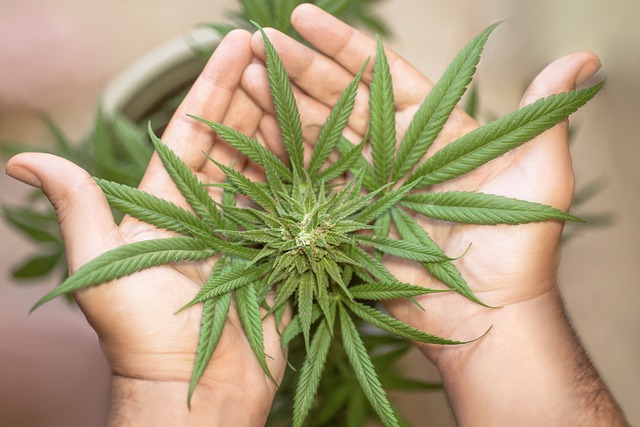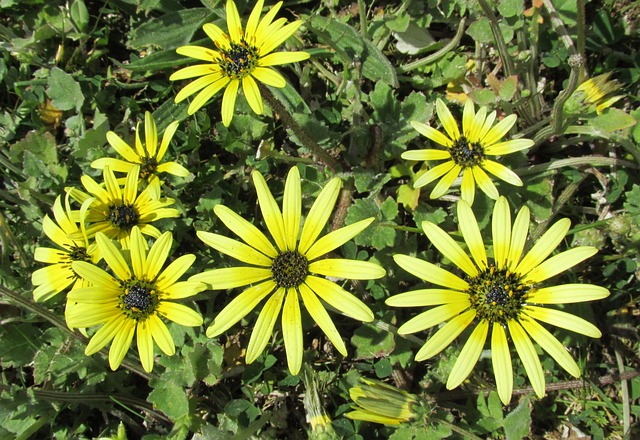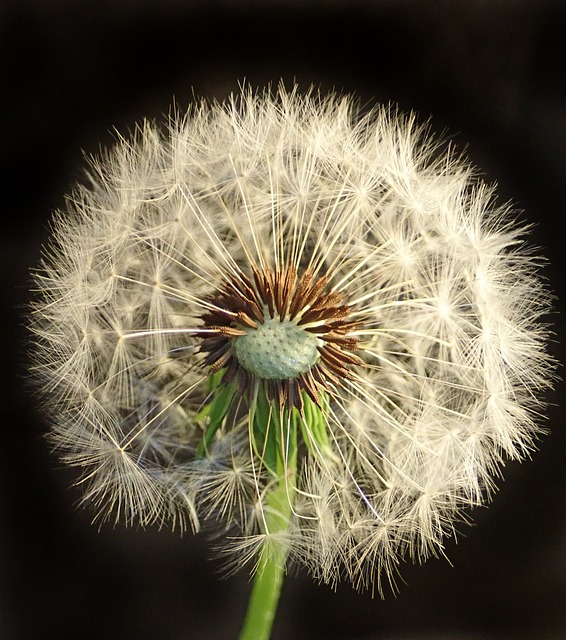Maryland has officially embraced THCA (Tetrahydrocannabinolic Acid), a non-psychoactive cannabinoid gaining attention for its potential health benefits within the medical cannabis sector. With legal frameworks in place, patients and researchers can safely investigate THCA's anti-inflammatory, neuroprotective, and anti-nausea properties. Unlike its psychoactive cousin THC, THCA offers these therapeutic benefits without intoxication, making it a compelling alternative for pain management, multiple sclerosis, nausea from chemotherapy, anxiety relief, and inflammation reduction. The state's regulatory environment ensures patient safety and supports the legal cultivation, possession, and use of THCA flower, which is rich in this promising cannabinoid. Maryland's progressive stance on THCA, particularly its legality, positions it as a leading state in exploring THCA's potential within the medical cannabis field. This movement encourages those in Maryland to consider incorporating THCA flowers into their wellness routines for daytime use or sobriety-focused applications, with the assurance of legal support and safety standards.
Discover the emerging wellness trend in Maryland with the therapeutic potential of THCA flower. This article illuminates the benefits of this cannabinoid, now legally accessible within the state’s progressive legal landscape. Dive into the scientific underpinnings of THCA and its promising health advantages, and learn how to harness its effects for enhanced wellness and relaxation. Join us as we explore how Marylanders are embracing THCA flower for its potential healing properties.
- Exploring THCA Flower Benefits in Maryland's Legal Landscape
- The Science Behind THCA and Its Potential Health Advantages
- Navigating the Effects of THCA Flowers for Wellness and Relaxation
Exploring THCA Flower Benefits in Maryland's Legal Landscape

The medicinal cannabis community in Maryland has been abuzz with discussions about THCA (Tetrahydrocannabinolic Acid), a non-psychoactive precursor to THC (Tetrahydrocannabinol). As the legal landscape evolves, the potential benefits of THCA flower have come to the forefront. In Maryland, where THCA is legally permissible within the confines of the state’s medical cannabis program, patients and researchers are exploring its therapeutic properties. Studies suggest that THCA may offer anti-inflammatory, neuroprotective, and anti-nausea effects without the psychoactive high associated with THC. This has led to a growing interest in raw cannabis, including flowers rich in THCA, as an alternative or complementary treatment for various conditions.
The state’s regulatory framework allows for the exploration of THCA’s benefits under a controlled environment, ensuring patient safety and compliance with the law. In Maryland, the cultivation, possession, and use of THCA flower are regulated but legal for qualifying patients with a recommendation from a certified healthcare provider. This opens up avenues for research into its potential advantages and allows medical cannabis users to experiment with this promising compound. As the understanding of THCA’s effects expands, Maryland’s role in the broader conversation on cannabinoids is solidified, positioning it as a forward-thinking state in the legal cannabis industry.
The Science Behind THCA and Its Potential Health Advantages

Delta-9 tetrahydrocannabinol (THC) is well-known for its psychoactive effects, but there’s another cannabinoid gaining attention for its potential health benefits: tetrahydrocannabinolic acid A (THCA). THCA is the non-psychoactive precursor to THC and is found in raw cannabis plants or those that have not been exposed to heat or light, which converts THCA into THC. Scientific research suggests that THCA may offer a range of therapeutic properties without the psychoactive side effects associated with THC.
In Maryland, where laws have evolved to allow certain forms of cannabis for medical and adult recreational use, THCA has become a subject of interest among researchers and users alike. Studies indicate that THCA may possess anti-inflammatory, neuroprotective, and anti-nausea properties, making it a potential treatment option for various conditions such as chronic pain, multiple sclerosis, and nausea from chemotherapy without the ‘high’ associated with THC. Additionally, preliminary research has explored its potential role in reducing anxiety and inflammation, offering hope for those seeking alternative therapies. As more studies are conducted, the understanding of THCA’s benefits may continue to expand, potentially leading to new forms of treatment that leverage this cannabinoid’s therapeutic potential, particularly within the legal framework established by Maryland’s evolving cannabis laws.
Navigating the Effects of THCA Flowers for Wellness and Relaxation

Exploring the therapeutic properties of THCA flowers, which contain tetrahydrocannabinolic acid, a non-psychoactive precursor to THC, has garnered attention for its potential wellness and relaxation benefits. In Maryland, where the legal landscape has embraced the medicinal use of cannabis derivatives, THCA flowers are becoming an increasingly popular choice among consumers seeking natural relief from various ailments. These flowers are celebrated for their rich cannabinoid profile, which includes not only THCA but also a host of other beneficial compounds like CBD and CBN. Users often report that THCA flower can provide a calming effect without the intoxicating high associated with its decarboxylated form, THC. This makes it an attractive option for individuals looking to incorporate cannabinoids into their wellness routine during daylight hours or in settings where sobriety is required. The non-psychoactive nature of THCA also means that users can reap the benefits of cannabis without altering their mental state, making it suitable for a range of activities including yoga, meditation, and creative pursuits. As with any wellness regimen, it’s advisable for potential users to consult with a healthcare provider to ensure THCA flowers align with their health goals and to understand the appropriate dosage for their specific needs. In Maryland, where the legal status is favorable, enthusiasts can explore the full spectrum of benefits that THCA flowers have to offer within the confines of the law.
THCA flower, a cannabinoid-rich hemp derivative, has emerged as a subject of interest within the wellness community, particularly in light of its legality and potential health benefits in states like Maryland. The scientific community continues to explore the therapeutic properties of THCA, suggesting that it may offer various advantages without the psychoactive effects associated with its counterpart, THC. As Maryland’s legal landscape evolves to accommodate these new wellness options, consumers are increasingly turning to THCA flowers for their potential to promote relaxation and support overall well-being. This article has delved into the multifaceted benefits of THCA flower, providing a comprehensive overview of its legal status in Maryland, the science supporting its use, and practical guidance on how to experience its effects responsibly. As research progresses and regulations adapt, the conversation around THCA flower is set to expand further, underscoring its role as a potentially valuable addition to health-conscious routines.
